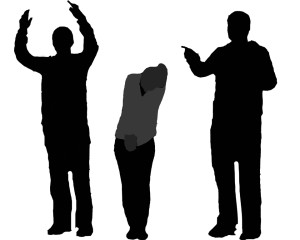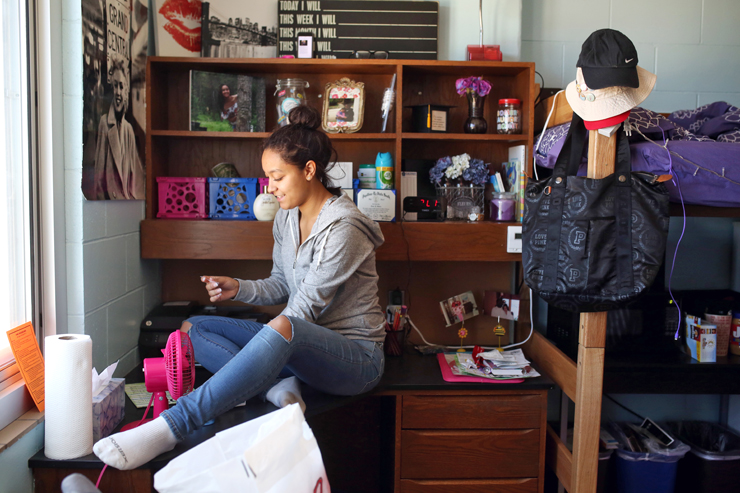
By Crissy Holtzer | Student Columnist
We all know someone who prefers to spend his or her free time alone, hates doing group work and would rather do just about anything than speak in front of the class. This lack of assertiveness may garner labels of “shy” or “soft-spoken.” This person is an introvert.
In a teamwork-centric world, life can be tough for an introvert. At work or school, we spend the majority of our days surrounded by people talking to us. For extroverts, that’s great. Some introverts, like myself, it can feel almost as though the world is out to exhaust and destroy us.
The problem with the necessary interaction between extroverts and introverts is that it’s hard to understand each other. Extroverts may be intensely confused when their quiet friend turns down an invite to the party of the year or as to why their quiet friend doesn’t speak up more in class when he or she has such good ideas. Chances are he or she isn’t too lazy to speak up, but instead doesn’t see the need to interact with others as often.
Former lawyer and negotiations consultant, and defender of introverts, Susan Cain, explains the personality types in terms of how one “recharges their batteries,” which essentially means how one deals with social interaction. Generally, extroverts are people who relish social interaction. They are people with things to say, people to see and places to go. Introverts, on the other hand, would rather say nothing, see no one and stay in.
Introverts create their energy when given time and space. Oftentimes introverts might consider themselves defective because they feel the need to decompress after social interaction, instead of constantly being surrounded by people, as many others seem to prefer.
Cain explains in her March 2012 Technology, Entertainment, Design (TED) talk about her book Quiet: The Power of Introverts in a World That Can’t Stop Talking how Western culture came to much prefer extroversion and why shunning the introverts is not the best idea.
At the turn of the 20th century, when big business and boardrooms started to boom, Americans began to value the “best talker” as opposed to the “best thinker.” Businesses began favoring the loudest and most convincing businessman to run the show and our lives. According to Cain, our society transformed into a “culture of personality” as opposed to one of character.
Now this outgoing ideal has continued to creep its way into 21st century culture. In most primary education settings, students typically no longer sit in rows of desks, but sit in clusters of desks that face each other or in groups of four or five. Increasingly, students are forced to do group projects and work with several others, or at the very least given points for “participation.”
When people, especially children, are grouped together and forced to work this way for the majority of the day, it can be hard for introverts to excel in learning and working environments. They are spending their energy dealing and most often struggling with socials skills instead of focusing on learning.
According to Marti Olsen, author of The Introvert Advantage, 25 to 30 percent of the U.S. population is made up of introverts. Consequently, society is selling them short by generalizing them as geeks.
Cain has struggled herself with generalizations and stereotypes about introverts.
“A widely held, but rarely articulated, belief in our society is that the ideal self is bold, alpha, gregarious,” Cain said in a Forbes interview in January 2012.
Introversion and extroversion are personality types; one cannot become the other. As an introvert, I was always the one who brought a book to the sleepover party. I will never be a social butterfly and, more importantly, I don’t think I should have to.
Albert Einstein and J.K. Rowling have all identified themselves as introverts. This unique group of people has something to offer the world outside of the realm of being a sociable speaker. Society should reflect that there are more than just extroverts in the world. Instead of pushing our students to do group work, always participate vocally and think as a committee member, we should attempt to be more accommodating to the culture of character. By doing this, we’ll allow those who process the world differently to find their own unique way to learn and be creative.
Crissy Holtzer is a sophomore journalism and public relations major and can be reached at holtzerc@duq.edu.


